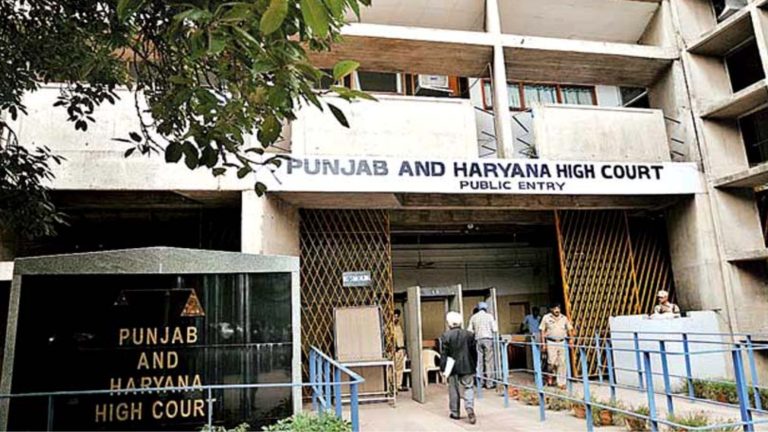In a significant ruling, the Punjab and Haryana High Court upheld the dismissal of an employee, emphasizing that a history of prior misconduct justifies termination even if the final charge is minor. This judgment reinforces that continuous misbehavior and disciplinary issues can provide grounds for termination, stressing that a lenient or isolated approach to final infractions does not apply if there’s a documented history of past misconduct.
Case Background
The case arose from a dispute where the employee challenged their dismissal after being charged with relatively minor misconduct. The employee contended that the final charge, which led to the termination, was not severe enough to justify dismissal. However, the employer argued that the dismissal was appropriate given the employee’s history of misbehavior, which included prior incidents of misconduct that had been recorded and warned against.
Court’s Reasoning
The High Court took a holistic view of the employee’s conduct, rather than isolating the final charge. The court emphasized that a pattern of repeated misconduct over time warrants a more severe consequence, regardless of the nature of the final infraction. The court held that employers are justified in considering the entirety of an employee’s disciplinary history when determining whether dismissal is appropriate.
This perspective aligns with previous rulings where courts have upheld that the cumulative effect of multiple violations, even if minor in individual capacity, can undermine the trust and confidence between an employer and employee. The court reiterated that employment is based on mutual trust, and persistent misconduct erodes that trust over time.
Also read – Legality of Reinstating Workman at another place than Original place of Posting : Dr. Kamlesh Kumar Agrawal
Misconduct History as Justification for Dismissal
The ruling clarifies that even if an individual act of misconduct is not severe, employers have the right to take a comprehensive approach. The court recognized that an employer cannot be expected to tolerate continuous violations of conduct rules. This broader understanding of misconduct sets a precedent where prior warnings, disciplinary actions, and misbehavior are collectively considered during dismissal cases.
By affirming the employer’s right to terminate based on the employee’s history of misconduct, the court emphasized the importance of maintaining discipline and accountability in the workplace. This approach protects the employer’s interests in ensuring a productive and respectful working environment, highlighting the need for employees to adhere to professional standards consistently.
Precedents and Legal Basis
The judgment drew upon established legal principles, including the doctrine of proportionality, which allows employers to impose a punishment that fits not only the latest misconduct but the employee’s overall record. The court reiterated that the cumulative impact of multiple offenses can breach the employer’s trust and justify termination.
The court also relied on precedents from the Supreme Court and other high courts, where employee dismissals were upheld when there was a documented history of repeated violations, even if the final charge was relatively insignificant. The High Court’s ruling builds upon this judicial foundation, further strengthening the employer’s authority to enforce discipline in cases of continued misconduct.
Employer’s Discretion and Employee Accountability
One of the key takeaways from the ruling is the reaffirmation of an employer’s discretion in handling cases of misconduct. The court noted that while employees have rights, they are also bound by the contractual terms of their employment, which include adherence to conduct rules. Continuous violation of these rules, even in minor ways, undermines the very nature of the employment contract.
The court emphasized that employers are not obligated to overlook repeated misbehavior simply because the final incident is minor. Instead, the pattern of misconduct justifies stronger disciplinary action, including dismissal. This ruling encourages employers to maintain records of employee conduct and take appropriate action when necessary.
Impact on Employment Law
This ruling has a significant impact on employment law, particularly in how disciplinary actions are viewed. It sets a precedent for employers to take a more comprehensive approach when dealing with misconduct. The judgment acknowledges that employers need not wait for a serious breach of rules to terminate an employee when there is evidence of continuous, albeit minor, misconduct.
For employees, the ruling serves as a reminder of the importance of maintaining consistent professional behavior. It underscores that even minor infractions, when repeated over time, can accumulate into a case strong enough for dismissal. Therefore, employees must take corrective measures when warned about their conduct.
Conclusion
The Punjab and Haryana High Court’s decision to uphold the dismissal of an employee with a history of misconduct sets a robust precedent in employment law. The court’s reasoning—that a pattern of behavior justifies termination, even if the final infraction is minor—reinforces the importance of workplace discipline. Employers are thus encouraged to maintain comprehensive records of employee misconduct and to act decisively when necessary to protect the integrity of their organizations.
This judgment underscores the balancing act between employee rights and employer authority, ultimately emphasizing that repeated violations of conduct rules erode the trust necessary for continued employment. It serves as a powerful reminder that the cumulative impact of minor offenses should not be underestimated in the employment relationship.
Source : news.courtpractice
Stay connected with us on social media platforms for instant updates click here to join our LinkedIn, Twitter & Facebook



































